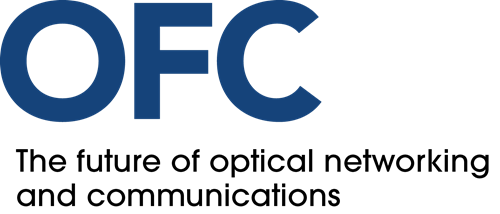The Demo Zone will feature live demonstrations on Monday, 16 March, 14:00 - 16:15. These demonstrations showcase research projects and proof-of-concept implementations related to novel, non-commercial, optical communication devices, systems and networks.
Demonstrations occur in dedicated booths in the Demo Zone, equipped with a table, monitor, and bulletin board. They are shown to small groups, favoring an interactive format with real-time exchanges between attendees and demo presenters. Demonstrations are typically executed on request and may incorporate a mix of on-site and remote equipment. Demonstrations can involve recorded videos or live connections to remote hardware or experiments. Don't miss this year's demonstrations -- Get in the Zone!
Topic Categories
The Demo Zone showcases various aspects of optical physical layer transmission, hardware, and network orchestration/intelligence. These include, but are not restricted to:
- Automated Device Alignment or Characterization Setups
- Hierarchical Packet/Optical Pluggable Control
- Automated Measurement Setups for Advanced Transmission Experiments Including the Use of Novel Optical Fibers
- Systems, Sub-Systems, and Devices for Free-Space, Microwave, or Optical Fiber Transmission and Switching
- Digital Processing Sub-Systems and Sensing, Including Integration of Communications and Sensing
- Optical Access Networks Including Their Convergence with Metro Transport, Wireless Access Networks, Mobile Edge Computing
- Novel Networking Elements and Concepts, Including Those Supporting Time-Deterministic and Low-Latency Applications
- Network Virtualization, Slicing, Software-Defined Control of Networks
- Programmable Networks, Including Softwarised Network Functions and Programmable Hardware
- Application of AI and ML to Optical Networks, Systems, and Subsystems, Including Autonomous Network Management, Control and Orchestration
- Digital Twin for Optical Networks, Systems, And Subsystems
- AI for Optics and Optics for AI
- Quantum Networking, Including Demonstration of Entanglement Distribution, Hybrid Quantum and Postquantum Solutions and Quantum Layer Management
- Implementation of Advanced QKD Applications and Quantum Protocols, Including Practical Implementation for Quantum/Classical Interaction
Demo Proposal Submission Guidelines
Adherence to the instructions for the preparation of the demo proposals is imperative. No changes or revisions will be allowed after the deadline. Proposals for demonstrations must be submitted via the online submission system, with a demo description in PDF format in adherence to the OFC regular paper style guide. Do NOT email, fax, or mail your proposal. A complete electronic submission is due before the published deadline. It should be three pages in length and will include the following:
- A 35-word abstract;
- An Overview section giving a complete description of the demo’s research theme and the technologies being demonstrated.
- An Innovation section describing the problem and demo’s novelty in solving it.
- An OFC Relevance section explaining why the OFC audience and communities should be interested in this demo.
- A Demo content & implementation section clearly explaining: (i) the objectives and the configuration of the demo; (ii) how the demonstration will be physically set up, including description of equipment to be used; (iii) how the demo will be presented to the attendees; and (iv) how attendees might be able to interact with the demonstration (this last feature is essential to make the session engaging).
- The objective should be to demonstrate an innovative application, a working prototype, or a novel concept in the space of optical communication devices, systems, transmission and networks.
- Demonstrations should be based on technical achievements and prototypes at a research stage (i.e., no pre-commercial or product demonstrations are allowed).
The title of the demo and the primary demo presenter's name and affiliation must appear on the first page with all additional authors and their affiliations. Proof your work before submitting it.
As a guideline, the maturity of the demonstrated feature should be at a technology readiness level (TRL) of 6 or lower. Please refer to https://en.wikipedia.org/wiki/Technology_readiness_level for more information on TRL.
Submission Deadline: 18 November 2025, 12:00 Noon Eastern Time (UTC-05:00) - CLOSED
Materials Provided by OFC Onsite for Accepted Demo Zone Demonstrations
An 8’x30” (243 cm x 76 cm) countertop table, an 8-foot-high x 4-foot-wide (244 cm x 122 cm) bulletin board (as for the poster session), a power outlet strip (5 outlets), and WLAN connectivity.
